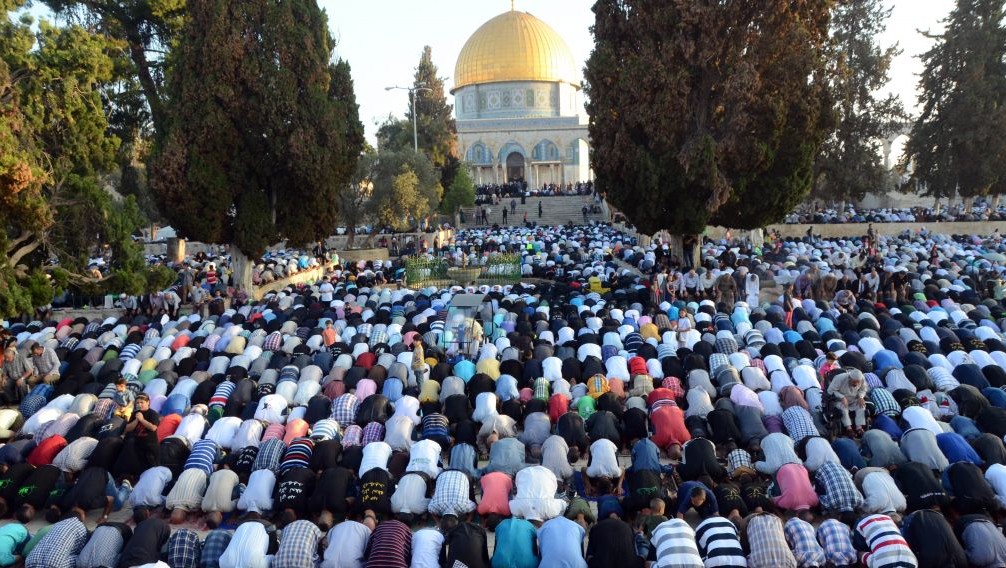A landmark ruling by an Israeli court in favour of Jews praying at the Al-Aqsa Mosque complex has stoked Palestinian fears of Jewish encroachment over Jerusalem’s holiest site.
Palestinians denounced on Thursday a decision by an Israeli Magistrate Court not to regard prayer by Jewish worshippers as a “criminal act” if it remained silent, which upends a longstanding agreement whereby Muslims worship at Al-Aqsa while Jews worship at the nearby Western Wall.
The judicial decision came after an Israeli settler, Rabbi Aryeh Lippo, went to court to get a temporary ban order from entering Al-Aqsa lifted. The order was imposed on him by Israeli police after he performed prayers at the compound.
Palestinian Prime Minister, Mohammad Ibrahim Shtayyeh, has called on the United States to fulfil its pledge to preserve the status quo of the compound, and for Arab nations to stand in solidarity with Palestinians.
“We warn against Israel’s attempts to impose a new reality at the Holy Al-Aqsa Mosque,” Shtayyeh said on Thursday.
Jordan, whose role as keeper of Al-Aqsa was recognised in a 1994 peace treaty between Amman and Tel Aviv, called the decision “a serious violation of the historical and legal status of Al-Aqsa Mosque”.
Khaled Zabarqa, a lawyer and expert on Jerusalem and Al-Aqsa, told Al Jazeera that “the Israeli judicial system does not have any legal jurisdiction to rule over the sanctity of the Al-Aqsa Mosque and to change the status quo.”
From a legal standpoint, the decision is null, he said.
While the verdict reached on Wednesday by Israel’s lowest judicial body amounts more to an endorsement than a legal ruling, it has stirred Palestinian fears of a Jewish takeover of the third-holiest site in Islam.
Bloody confrontations between Palestinians and Israeli security forces have repeatedly occurred as more and more Jews have been entering the Al-Aqsa compound, which they refer to as Temple Mount, to pray.
Palestinians view visits by Jews to the site as a provocation and have accused Israel of systematically trying to undermine earlier agreements to expand its own control.
The area is in Jerusalem’s walled Old City and part of the territory Israel captured in a 1967 Middle East war. Israel annexed occupied East Jerusalem in 1980 in a step that was never recognised by the international community.
Jordan’s Council of Endowments (Awqaf), which manages the Islamic edifices in the Al-Aqsa compound, called the move a “flagrant violation of the Islamic and sanctity of the mosque and a clear provocation to the feelings of Muslims around the world”.
Hamas, the group that governs the besieged Gaza Strip, said the move is a “blatant aggression against the Al-Aqsa Mosque, and a clear declaration of a war that goes beyond political rights to an aggression against religion and sanctities”.
The “resistance is ready and prepared to repel aggression and defend rights,” the group said in a statement.
The mufti of Jerusalem and Palestine, Sheikh Muhammad Hussein, expressed concern for a possible escalation of hostilities.
“We appeal to the Arabs and Muslims to save Jerusalem and Al-Aqsa Mosque from the invasive decisions of the occupation on Al-Aqsa Mosque, and we warn everyone against the outbreak of a religious war,” the mufti said.


